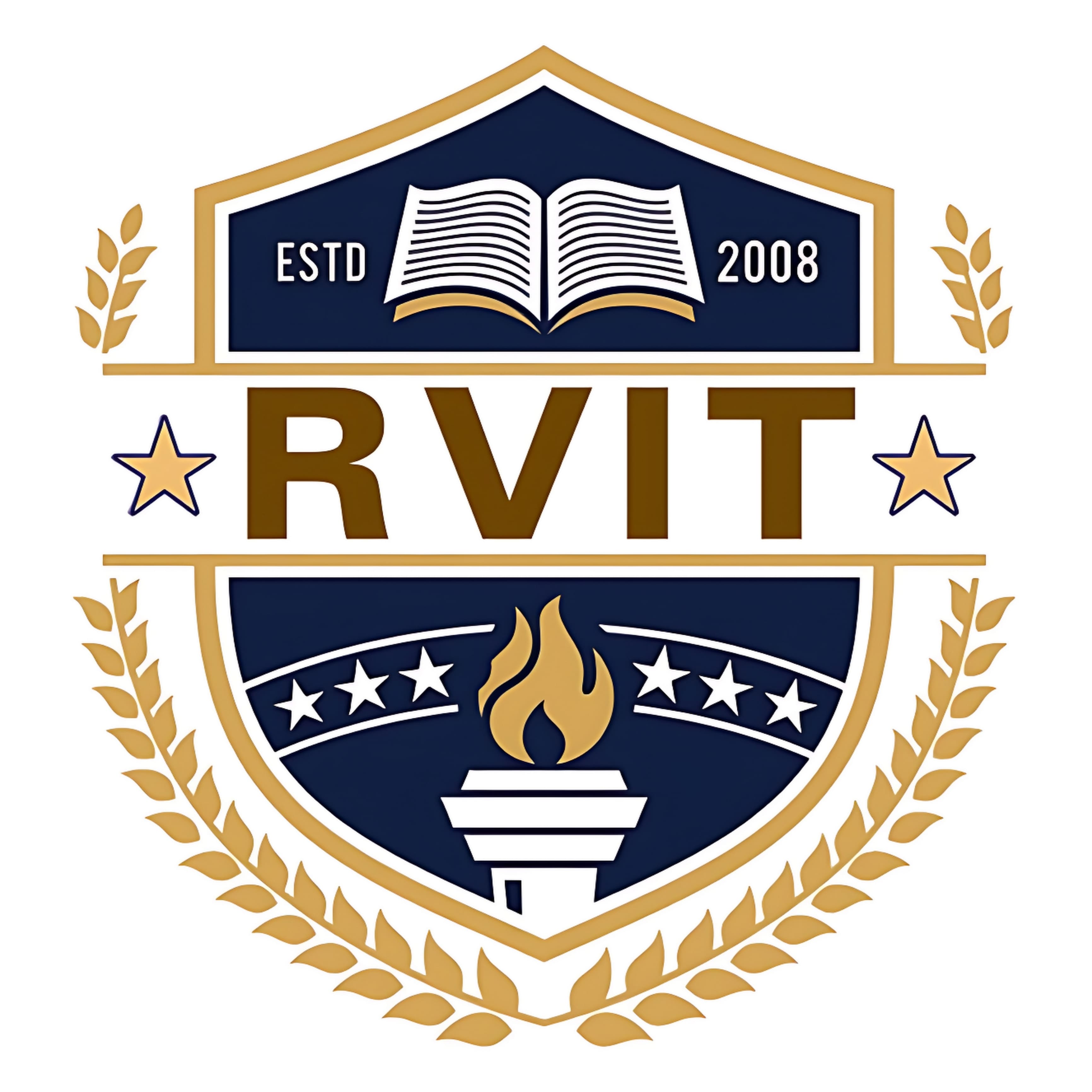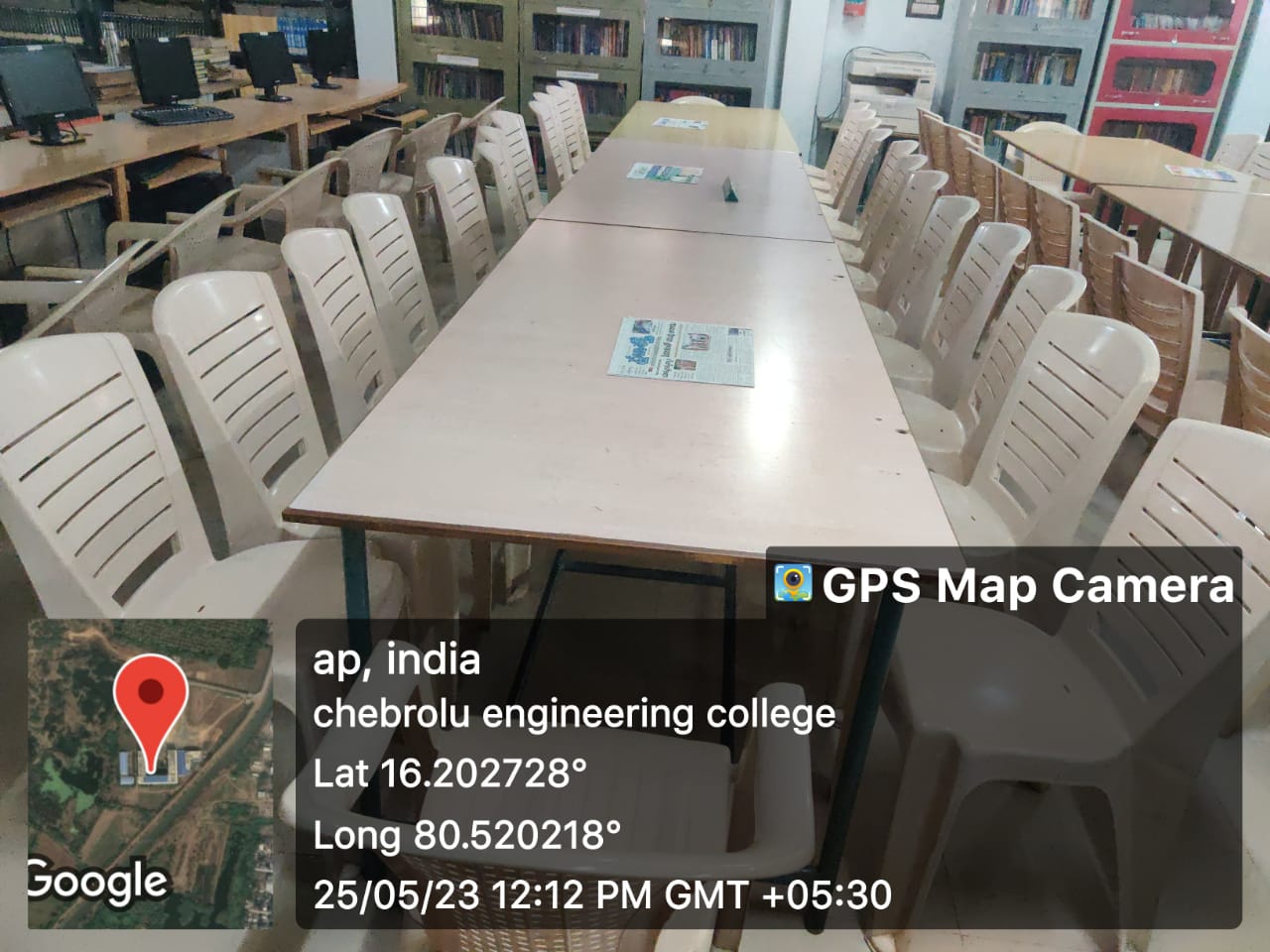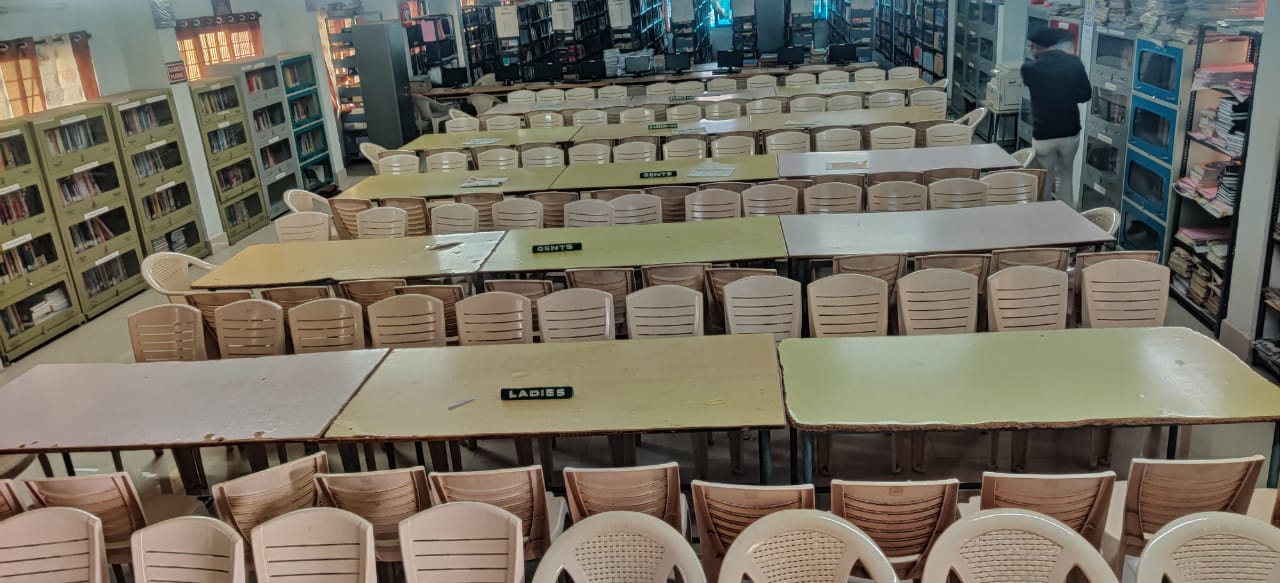Ensuring Sustained Quality and Enhancing Excellence in Higher Education
At RVIT, we are committed to maintaining and enhancing the quality of higher education. To institutionalize our continuous improvement process, the Internal Quality Assurance Cell (IQAC) was established in 2018.
The IQAC is dedicated to creating a system of conscious, consistent, and catalytic action aimed at enhancing the teaching-learning process, refining evaluation procedures, and improving the overall quality of both students and faculty. Through regular internal audits, the IQAC reviews and supports our institution's ongoing efforts towards excellence.
Objectives
- To develop a system for conscious, consistent and catalytic action to improve the academic and administrative performance of the institution.
- To promote measures for institutional functioning towards quality enhancement through internalization of quality culture and institutionalization of best practices.
Functions
- Development of quality benchmarks for academic/admin activities.
- Facilitating a learner-centric environment for quality education.
- Collection and analysis of feedback from all stakeholders.
- Dissemination of information on quality parameters.
- Organization of workshops and seminars on quality themes.
- Documentation of various programmes leading to quality improvement.
- Development of Quality Culture in the institution.
- Preparation of Annual Quality Assurance Report (AQAR).
Vision of the Institute
To impart quality engineering education and offering research opportunities to students with high standards, to serve as valuable resource for the advancement of society and organization impart students with ethical values to become great resource of pride for national and global needs.
Mission of the Institute
| Mission No. | Mission Statements |
|---|---|
| IM1 | To implement state of teaching learning process to our students to become resource for addressing industry and societal needs. |
| IM2 | To continue the development of infrastructure, provide latest equipment to our students with practical environment of learning, research, creativity and innovation to become global professionals with ethical and moral values. |
| IM3 | To collaborate the projects with industry, not only to address local rural needs but also to imbibe knowledge to meet national and global needs. |
| S.No | Name | Designation | Role in IQAC |
|---|---|---|---|
| Chairperson | |||
| 1 | Dr. R.V. Krishnaiah | Principal | Chairperson |
| Management Members | |||
| 2 | Sri R. Vamsi Krishna | President | Member |
| Senior Administrative Officers | |||
| 3 | Dr. Shabana Sultana | HoD-H&S | Member |
| 4 | Dr. V Dinesh Babu | HoD-CSE | Member |
| 5 | Dr. A. Rama Rao | HoD-CSE(AIML) | Member |
| 6 | Mr. M. Ambarisha | HoD-CSE(DS) | Member |
| 7 | Dr. S. Satheesh | HoD-ECE | Member |
| 8 | Mr. P. Nageswara Rao | HoD-EVT | Member |
| 9 | Dr. G. Sambha Siva Rao | HoD-MCA | Member |
| 10 | Dr.S.Mallikarjunaiah | Dean IQAC | Member |
| 11 | Dr. K.V. Lakshmi | COE | Member |
| Senior Teachers | |||
| 12 | Dr. J. Narendra Babu | Professor, CSE | Member |
| 13 | Dr. A Raghavendra Rao | Faculty, H&S | Member |
| 14 | Dr. Kaja Krishna Mohan | Asst Professor, ECE | Member |
| 15 | Mr. Ch. Hari Babu | Faculty, H&S | Member |
| 16 | Mr. G Maheswarao | Faculty, H&S | Member |
| 17 | Mr. A Siva Prasad | Additional COE | Member |
| 18 | Mr. V.T.V. Kumar | Administrative Officer | Member |
| Employer / Industry / Stakeholder | |||
| 19 | Mr. G Aditya | CEO, Adiverse Technologies | Member |
| 20 | Mr. K. Deepak | Aspiron Tech | Member |
| Alumni / Student / Local Society | |||
| 21 | Mr. K Srinivas | EO, Chebrolu Panchayat | Local Society Member |
| 22 | Mrs. G Tejaswini | SE at TCS | Alumni Member |
| 23 | Mr. A Vijay | III CSE | Student Member |
Framework Elements
- Comprehensive QA Policy & Guidelines
- Regular Feedback Analysis
- Continuous Academic Improvement
- Annual Self-Assessment Reports
Key Parameters
- Teaching-Learning & Evaluation
- Research Innovations & Extensions
- Infrastructure & Learning Resources
- Student Support & Progression
🚀 Best Practice I: Digital Empowerment in Education
Objectives:
- Create an ICT-enabled environment for enhanced teaching-learning
- Develop a comprehensive digital learning platform
- Implement cloud-hosted LMS for anywhere, anytime access
- Enable effective assessment of learning outcomes
- Provide web-based access to all learning resources
Key Initiatives:
- RVIT Campus Management System (CMS)
- e-ExamDesk for automated examination processes
- ESLO (Evaluation of Student Learning Outcomes) tool
- BuildIT coding platform for campus recruitments
- Akanksha Learning Management System (LMS)
Impact:
- Extensive repository of lecture videos and course materials
- Effective implementation of flipped classroom model
- Increased placements from 60% to 80% in two years
- Paperless office implementation
🛠️ Best Practice II: Skill Development and Entrepreneurship
Objectives:
- Provide industry-aligned skill development
- Foster innovation and entrepreneurial mindset
- Promote research culture among students and faculty
- Attract funding for entrepreneurial ventures
- Develop solutions with societal impact
Key Initiatives:
- SkillUP Program for high-impact placements
- SkillBridge Program for industry-specific training
- Skill Refresher Program for comprehensive preparation
- Collaboration with TASK for skill enhancement
- Technology Innovation and Incubation Centre (TIC)
- RVIT-TBI | MSME PROGRAM for entrepreneurship
- Maker Space with advanced prototyping facilities
Impact:
- Increased median salary package from 4 to 6 lacs per annum
- Over 40 innovative products developed across disciplines
- 200+ Utility patents, 70+ Design patents, and 20+ copyrights
- 10 Technology Transfers with various industries
- Consistent high rankings in ARIIA and IIC
Rural Development and Community Empowerment
RVIT is committed to enriching not only the lives of its students and faculty but also contributing significantly to the development of surrounding rural communities. Our distinctive approach focuses on leveraging technology and education to empower underprivileged groups, particularly rural women and youth.
Key Initiatives & Impact
💪 Rural Women Entrepreneurship Project
In collaboration with the Department of Rural Development, RVIT has established a ₹1.2 crore project to empower rural women.
- Training in traditional crafts with modern techniques
- Common Facility Center with advanced equipment
- E-commerce platform for marketing
- Empowered over 500 rural women entrepreneurs
ðŸ–¥ï¸ Digital Literacy Program
Bridging the digital divide in rural areas through flagship programs.
- Mobile app usage for digital payments
- Basic computer skills for schools
- Trained 2000+ rural youth in digital literacy
- Improved digital infrastructure in 50 govt schools
🌾 Agricultural Technology Awareness
- Introduction to IoT-based farming techniques
- Water conservation management
- Increased crop yield by 30% in adopted villages
🩺 Community Health Initiatives
- Telemedicine services for remote villages
- Serving 10,000+ patients in remote villages
- Regular blood donation camps
Institutional Context
Overall strategic planning and governance.
Academic Affairs
Program policies and curriculum management.
Outcome Based Learning
OBE implementation and assessment strategies.
Academic Research
Faculty-led research initiatives.
Sponsored Projects
Externally funded research management.
Intellectual Property
Patents and commercialization.
Placement & Training
Career prep and recruitment.
Innovation Center
Student innovation support.
Industry Interface
Bridging academia and industry.
Feedback Analysis Snapshot
Process: Collection (2 wks) → Analysis (1 wk) → Review (2 wks) → Implementation.
View Full Analysis ReportAwards & Recognitions
| S.No | Title | View |
|---|---|---|
| 1 | DR. S. RADHAKRISHNAN VISIONARY MENTOR AWARD | |
| 2 | Droupadi Murmu Presidential Honor for Social Justice | |
| 3 | Narendra Modi National Unity Award | |
| 4 | Master of Letters |
Other Achievements
- Faculty Certifications & FDPs
- Research Papers (View All)
- Patents (View All)
- Guest Lectures Delivered
- Community Outreach & Extension Activities
- Paper Presentations & Publications
- Design Challenges & Model Presentations
- Competitive Exams (GATE, GRE)
- National Level Awards & Technical Events
- Internships at Top Companies
Student Satisfaction Survey
The SSS is a crucial component of NAAC accreditation, focusing on Teaching, Learning, and Evaluation excellence. Your identity remains completely anonymous.
Take the SurveyApproximately 10-15 minutes




